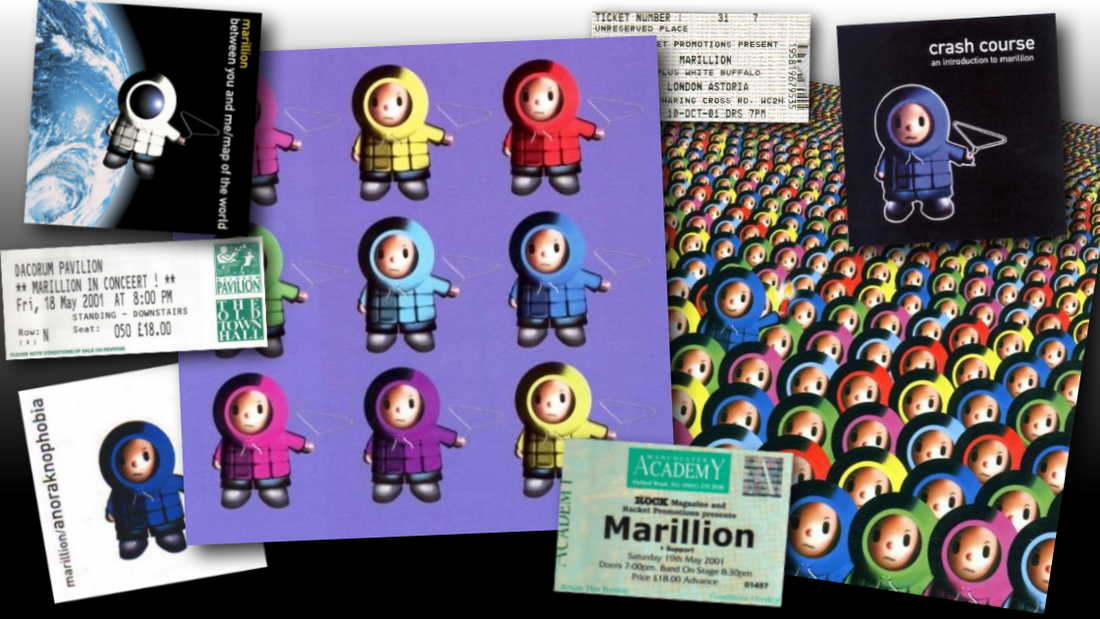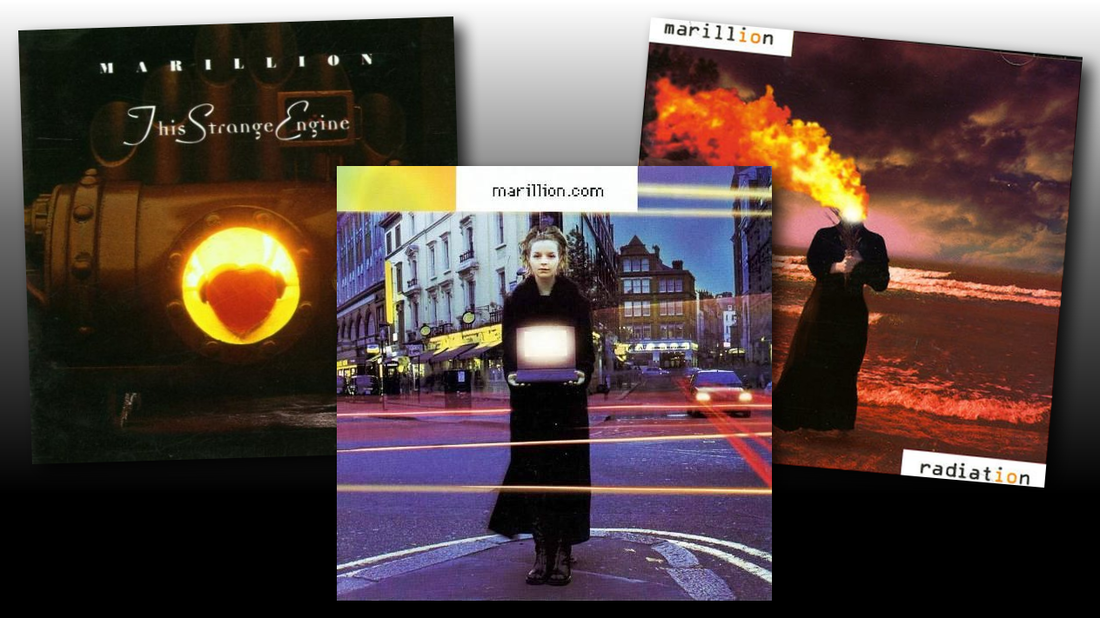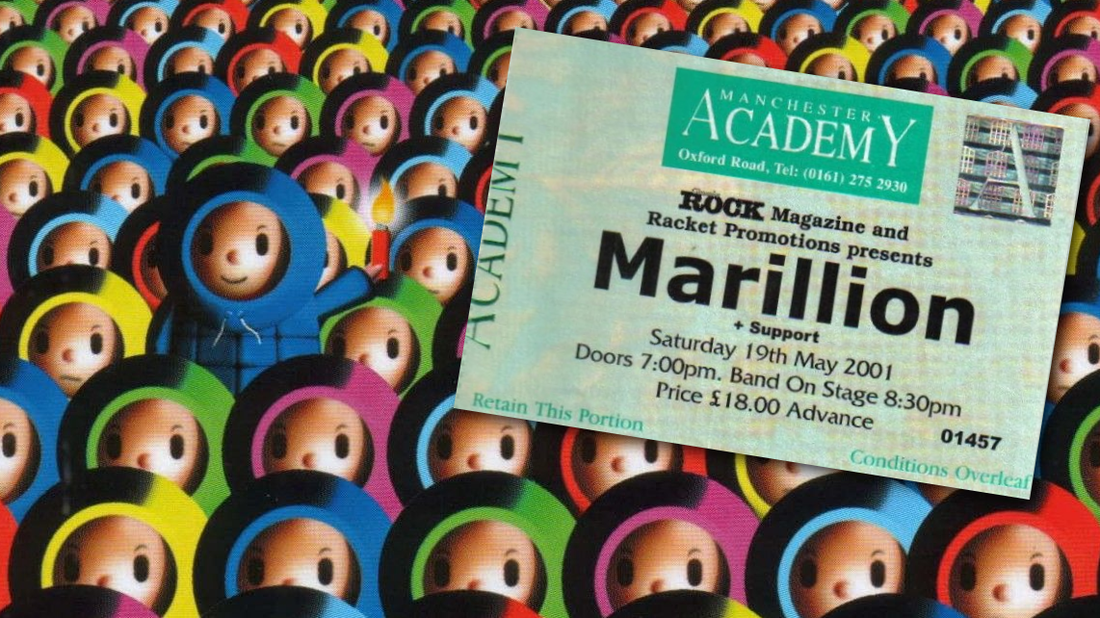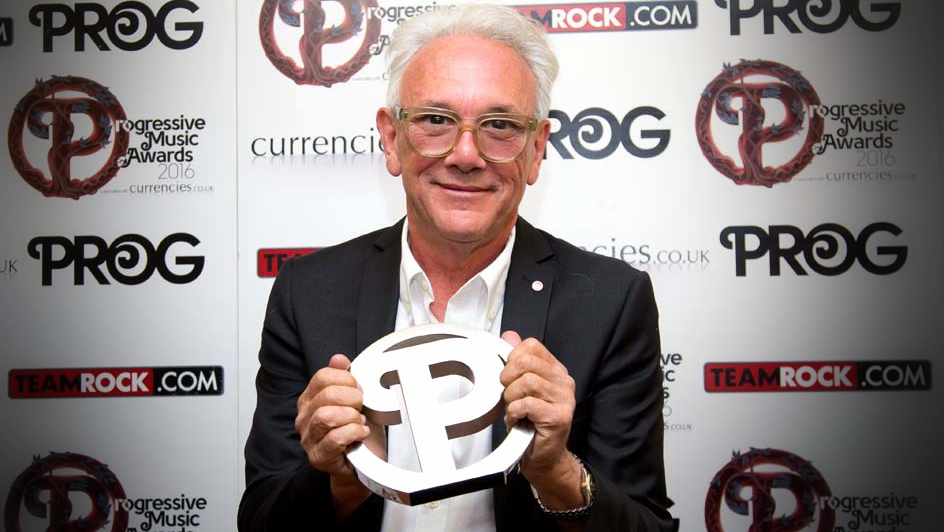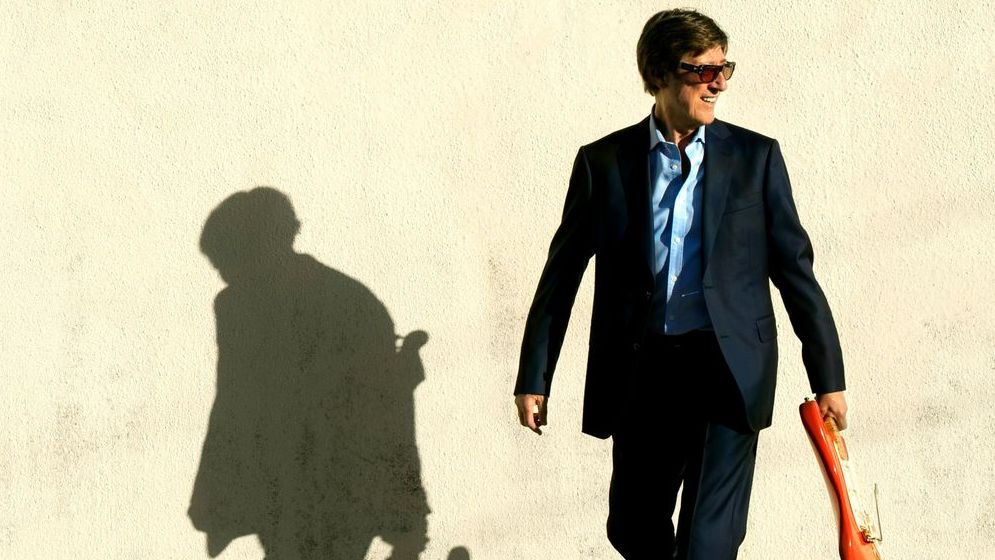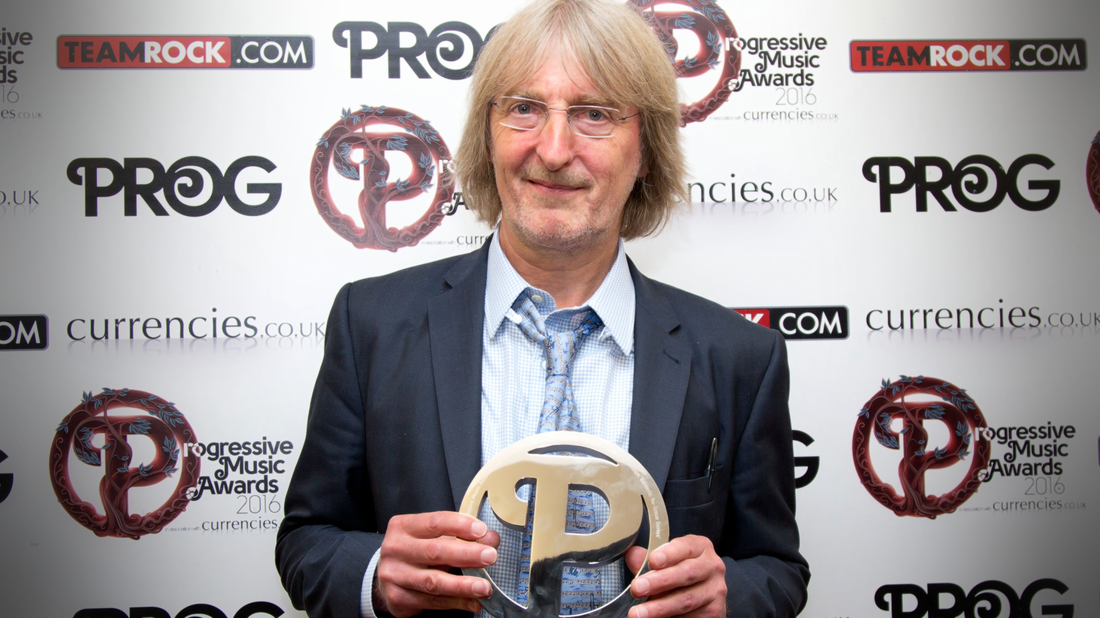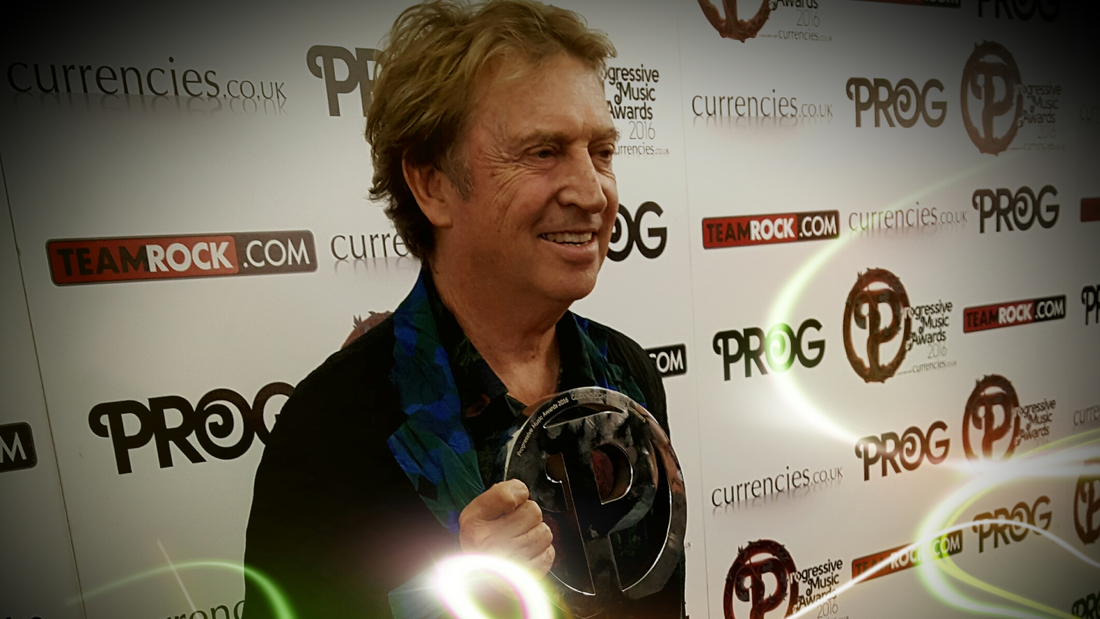Seperated Out.
Taking to the road during what was seen as something of a dukes up, comeback for the band, fifteen years ago this week, Marillion hit the road on their ‘Anorak In the U.K.’ tour. The shows took place during a period that marked a definitive line in the sand in the band’s history. Leaving behind their “wilderness years” and stumbling upon a hit formula for what nowadays is a standard business model, 2001’s ‘Anoraknophobia’ got this strange engine started up again, and saw the band making inroads towards a new found stability.
The previous decade had seen a marked decline in fortunes for the band. Following the departure of original singer and lyricist Derek William Dick -better known as 'Fish' - and the recruitment of Steve Hogarth, things initially looked promising. With 1989’s ‘Seasons End’, Marillion proved that they were far from a spent force without the totemic Scotsman at the helm, and 1991’s ‘Holiday’s In Even’ proved to be almost as successful. But following the disappointing performance of 1994’s bleak ‘Brave’ and its somewhat rushed follow-up ‘Afraid Of Sunlight’ in 1995, Marillion parted ways with EMI, the label that they had been with since the start of their career.
What followed was a string of independent releases to lesser and lesser returns that almost finished the band off for good. “Yeah the wilderness years!”, declared Steve Rothery, sitting down to chat with eonmusic via UberRock in 2014. “After you’ve been on a major label and then you’re dealing with independents, it very much depends on which companies they’re dealing with in each territory. In some places they did a great job -arguably better than EMI - but you’re missing out a lot, working the album in each territory around the world”. The result of which was a significant drop in sales for the once chart-bothering act: “Your sales drop from 250,000 down to 80 or 100,000 which is fantastic for the small independent label; it’s probably their big seller, but for the career of a band, it’s a lot less than ideal”.
Marillion clearly needed a new strategy, and following the release of three albums – 1997’s ‘This Strange Engine’, 1998’s ‘Radiation, and 1999’s Marillion.com’- via Castle Communications, they came up with a novel approach for their next album; by asking their fans to pay for it upfront. “We started the first crowd funding campaign to finance the album” stated Rothery, matter-of-factly. With the fans financing it, Marillion put the money to good use that would secure their future away from relying on record companies all together: “We raised the money, re-equipped our studio and employed Dave Meegan again to produce the album. We still owned it, so we had the freedom then to go to EMI and licence it on our terms”.
It was this frustration however that got the keyboardist thinking: “That was the point where I went; “why do we even have to sign a record deal at all?” Really, all we wanted was enough money to make the album, and we realised that with our fan base that it would be possible”.
With the album in the can, the band however still had to face down their critics. Saddled with the successes of the past, Marillion challenged journalists to review the new release without using the terms ‘progressive rock’, ‘Fish’ or ‘Genesis’, among other readily-associated terms. Despite their protestations to certain phrasing, when the album – titled ‘Anoraknophobia’ - finally arrived, it proved band were certainly progressing, as attested by the drum loops prevalent on a number of tracks such as the almost trip-hop ‘This Is The 21st Century’.
Live too, they were in defiant form. A quick look at the track listing for ‘Anorak In The U.K.’, a live release recorded - at the time of writing exactly fifteen years ago to the day - in Manchester on 19th May 2001, reflects their new found defiant stubbornness. Not a single track is lifted from the band’s 1983-1988 period with Fish. It was a brave step, but one that Hogarth now admits was a necessary for him. Speaking to eonmusic in 2015 the singer said: “I think there was time when I kind of felt a bit threatened by all the old stuff in a way”. Mark Kelly went even further, adding: “There was definitely, not a ‘backlash’ from H, but you can imagine?; He joins the band and he’s got to sing all these old Fish songs because we didn’t have anything else, and as we wrote more and more songs and established ourselves with him, he felt that he was getting fed up with people always talking about Fish. By the time we got to the end of the nineties, he was like; “I don’t want to sing those songs any more”.
Of the tracks on ‘Anoraknophobia’ – which the band opted to play in full during 2015’s Marillion Weekend conventions, the optimism is practically tangible on likes of opener ‘Between You And Me’, and the dreamy ‘Map Of The World’. However, it’s a work that the band itself seems to view with mixed feelings. “‘Fruit Of The Wild Rose’ was always a tricky one, and ‘This Is The 21st Century’, I mean, it goes on a bit, to be honest, I think”, laughed Mark Kelly: “You know, sometimes you come back to something and you think; “why don’t we just cut that a bit short?” It just goes on too long”.
Whatever their personal thoughts, it’s the Marillion fan base that made ‘Anoraknophobia’ possible. Speaking ahead of the band’s appearance at 2015’s Ramblin’ Man Fair, bassist Pete Trewavas summed up the key to their survival: “We’ve tried to be brave. We’ve tried to think forward, and be always moving forward, and our fans have allowed us to do that”, he reasoned adding: “We’ve got fantastic fans and we’ve got a huge following around the world and they’ve grown with us and they’ve allowed us to be experimental”.
It’s this dedication that has allowed the band not only to survive, but to thrive. “We’re at a stage now where we can pretty much do anything we like”, offed the bassist, adding: “The criteria is that we’re honest, and that if we trust ourselves and we think that the music’s good, then that’s what we go for. That’s the bottom line, because if you try and second guess what people want you’re probably not going to get it right, and then you end up where no one’s happy”.
Out of the ashes of an uncertain time, a new Marillion was born, and forthcoming release ‘F.E.A.R.’ will be the band’s fifth release financed by fans. Crowdfunding meanwhile has been adopted as an industry standard, and is now a multi-million dollar industry, with companies like Kickstarter and PledgeMusic - with whom Marillion are working with on 'F.E.A.R' - leading the way. Not bad for a bunch of anoraks.
'F.E.A.R' is due for release on 9th September 2016 is available for pre-order until 17th June here.

